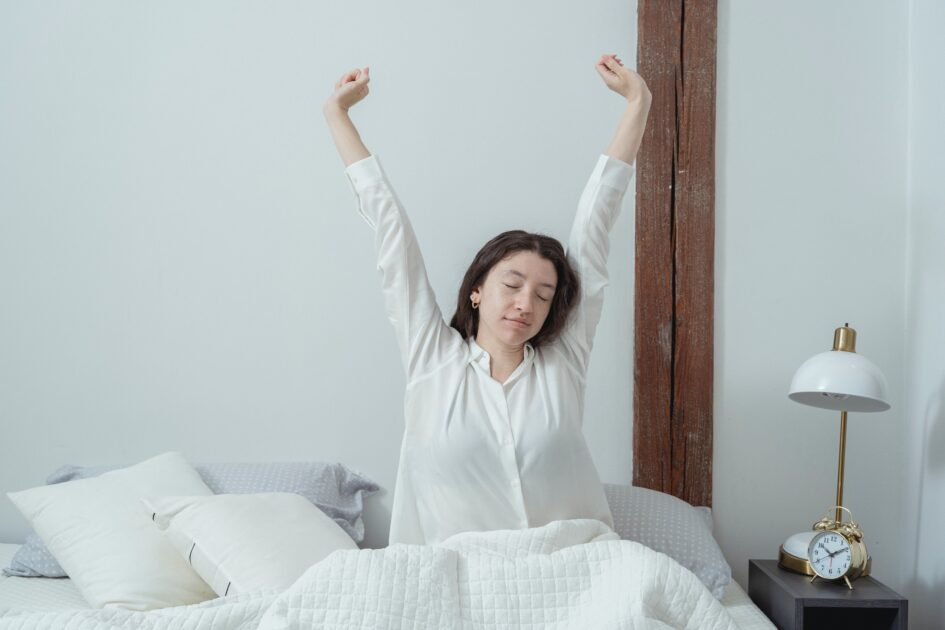Losing weight and boosting energy levels are necessary for maintaining good physical and mental health. According to the Centers for Disease Control and Prevention (CDC), about 73% of adults in the United States are overweight or obese. More than 2 in 3 adults in the U.S. have a body mass index (BMI) higher than the normal limits.
Maintaining a healthy weight through a balanced diet and regular exercise is important for reducing the risk of chronic diseases and improving overall health and quality of life. But diet and exercise are not the only contributing factors to losing weight and living a healthier lifestyle. Weight loss is a complex process and can be influenced by many factors.
If you are struggling to lose weight despite following a healthy diet and exercise routine, there is more to consider. It would probably be helpful to talk to a healthcare professional or a registered dietitian to help identify any underlying issues and develop a personalized plan to help you achieve your weight loss goals. But here are three tips that can help you reduce weight and increase energy levels.
Drink More Water
Drinking more water can be a simple and effective way to support your weight loss efforts, especially when you’re feeling tired. Water is one of the most underestimated ways to improve your energy levels. Staying hydrated can help you stick to your goals in many ways including:
- Reduce calorie intake by increasing feelings of fullness
- Boost metabolism by increasing the number of calories burned at rest.
- Promote fat burning by increasing lipolysis
- Help reduce water retention and bloating
You should start drinking a glass of water as soon as you wake up, as a great way to hydrate your body after a long night’s sleep. Carrying a reusable water bottle with you wherever you go can also make it easier to stay hydrated throughout the day.
Whether you’re at work, running errands, or hitting the gym, having a water bottle on hand can remind you to drink more water and help you avoid sugary drinks. But one of the best ways to include more water in your daily routine is to make it a habit. Set a goal to drink a certain amount of water and make it part of your daily routine. You can also try adding a reminder on your phone or using an app to track your water intake.
Get More Sleep
Studies have shown that getting enough sleep can help you lose weight and have more energy throughout the day. Lack of sleep has been linked to an increase in appetite and cravings for high-calorie foods. When you don’t get enough sleep, your body produces more of the hormone ghrelin, which stimulates appetite, and less of the hormone leptin, which helps suppress appetite.
But getting enough sleep helps regulate these hormones, reducing the likelihood of overeating and unhealthy food choices. During sleep, the body produces growth hormone, which helps break down fat and build muscle. Getting enough sleep can help promote fat burning and muscle building, which can also increase metabolism and help with weight loss.
You should try to go to bed and wake up at the same time every day, even on weekends. This helps regulate your body’s internal clock and promotes better sleep. You can also try to develop a relaxing routine before bed, including reading a book, taking a warm bath, or practicing yoga or meditation. There are also several sleep aids like herbal tea, melatonin, and CBD gummies to help you wind down, preparing your body and mind for sleep.
Reduce Stress
High-stress levels can impact our health in numerous ways, including decreased energy levels and difficulty losing weight. When you experience stress, your body produces cortisol, also known as the “stress hormone.” High levels of cortisol can lead to increased appetite, sugar cravings, and weight gain. Regular physical activity can help reduce stress and promote weight loss.
The best way to increase physical activity is to find an exercise you enjoy and make it a regular part of your routine. Exercise is a highly effective stress reliever when you’re having fun and seeing progress. Adopting healthy habits and engaging in stress-reducing activities can help you achieve your weight loss goals and enjoy a healthier, more energetic life. Other ways to reduce stress include getting enough sleep, eating a healthy diet, and seeking support from friends, family, or a professional.
Final Thoughts
Despite sticking to a healthy diet and exercise routine, you may find that you are not losing weight as quickly or as much as you had hoped. Carrying excess weight can lead to feelings of fatigue and low energy levels, but losing weight and improving fitness can help improve energy levels and boost overall physical performance.
While diet and exercise are essential, there are other factors that can contribute to weight loss and increased energy. Living a healthy lifestyle also includes drinking plenty of water, getting enough sleep, and reducing stress. Taking actionable steps to promote weight loss and improved energy is a worthwhile investment in your health.
